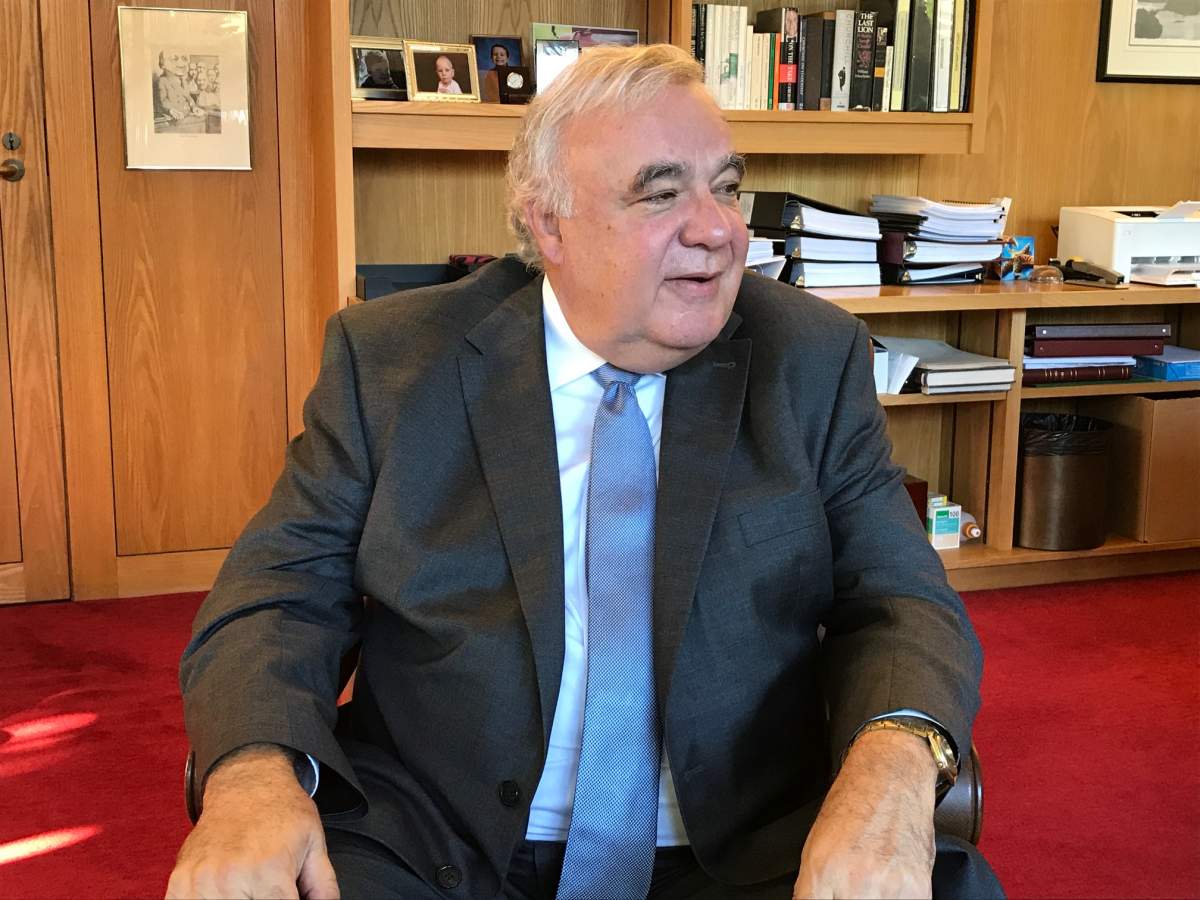It’s called the justice system, yet too often people who interact with it say real justice is hard to find.

So, what’s it like holding a leadership position in an area with vital importance to our society, yet constantly on the receiving end of criticism?
Christopher E. Hinkson was born and raised in Vancouver. He graduated from law school at UBC and spent his entire 31-year career as a lawyer at Harper Grey, doing mostly civil defence work.
In 2007 he was appointed to the BC Supreme Court, and in 2010, to the BC Court of Appeal.
“I’m the third generation of my family to practice law. My father before me was a judge, and I have a son who is practicing law now. So far, I suppose none of us have been able to find honest work. We’ve carried on that family tradition.”
In 2013, Hinkson became the 16th Chief Justice of the BC Supreme Court.
- Where did the tips go? B.C. restaurants say thousands missing from third-party account
- Nanaimo tugboat owner frustrated with justice system after offender released
- Westham Island Bridge in Delta closed for weeks as critical repairs needed
- B.C. government appoints former RCMP officer to bridge extortion communications
“We’re often what is described as the first amongst equals. We’re the same as the other judges, we just have different responsibilities. And, often we’re spokespeople for our courts. But, I don’t want to leave the impression I could boss around the other judges in my court. They wouldn’t let me and I wouldn’t try,” said Hinkson.
As the Chief Justice of BC’s superior trial court, Hinkson said part of his role is to liaise with other levels of government.
“We have to be in a position to go and reason when we need resources, when we need support. Sometimes we’re successful. Sometimes we’re not.”

Get breaking National news
Chief Justices also act as the face of the courts and must be accessible to the public. He said it’s important for the public to understand what they do, how they do it and why.
To that end, he said he understands why people often feel sentences handed down are either too lenient or sometimes too harsh.
“We do try and achieve some consistency,” Hinkson said.
“We try and make sure that people who come before the courts are treated in a similar fashion, because if they’re not, it’s not fair to them.”
WATCH: Retired Judge Selwyn Romilly honoured during Black History Month
There are many aspects of leadership that are transferable throughout sectors and industries, but Hinkson admits his job has constraints.
While Hinkson said his job has some fiscal responsibilities, unlike a CEO of a company he doesn’t have control over how much money the courts have to work with.
“We can’t start charging money for admission to court, but the provincial government does levy fees for ‘per diem,’ for appearing in court,” said Hinkson.
He said some complain about having to pay for that privilege, but as he describes it, that’s not something he can control.
Meanwhile, the make-up of the court has been the focus of much attention in recent years.
The Federal government, which appoints judges to sit on the BC Supreme Court, has revamped its application and selection process.
Justice Minister Jodie Wilson-Raybould has been spearheading the efforts, with the goal of having a more diverse judiciary.
Simply put, they want more women, more people of colour and more Indigenous people on the bench.
Hinkson said he supports measures to increase diversity, within reason.
“I wouldn’t want to sacrifice a quality white male simply because he was white and male,” said Hinkson.
Hinkson actually used to chair the advisory committee for federally appointed judges which makes recommendations on who should be appointed.
That’s something that’s changing, and even though it might not be as apparent as some would believe, courts are seeing much more ethnic diversity Hinkson said.
“Certainly in the last year, the appointments to our court have reflected more ethnic diversity than we’ve seen in the past. But it’s not something you can rush, and it’s not something I would want to rush just to point out that we’re representative but perhaps not as well qualified as we need to be,” said Hinkson.
Another criticism the judiciary often faces is that it can be incredibly slow, not only in process, but also to recognize changes and shifts in society.
Hinkson said he believes it’s important for judges to be ready to change, but their goal shouldn’t be to be change makers.
“We’re supposed to be administering justice in a fair and even-handed way to whoever comes before us, and if you come here with some pre-conceived notion of a change that you want to make and look for a case so you can impose that change, I’m not sure that you’re doing the job that you were appointed to do.”
Common law has been able to evolve over centuries precisely because judges have been prepared to recognize the changes that are necessary, Hinkston said.
Hinkson admits there are challenges with our justice system, but he hopes people feel like it is still a place they can have their problems dealt with.
“It’s a part of the fabric of our society, and it’s an important one because we have a profound effect on many people’s lives,” he said.
“And if we’re not being properly understood, or we’re leaving a bad impression with people, I think we need to know that and I think that we need to address it.”












Comments